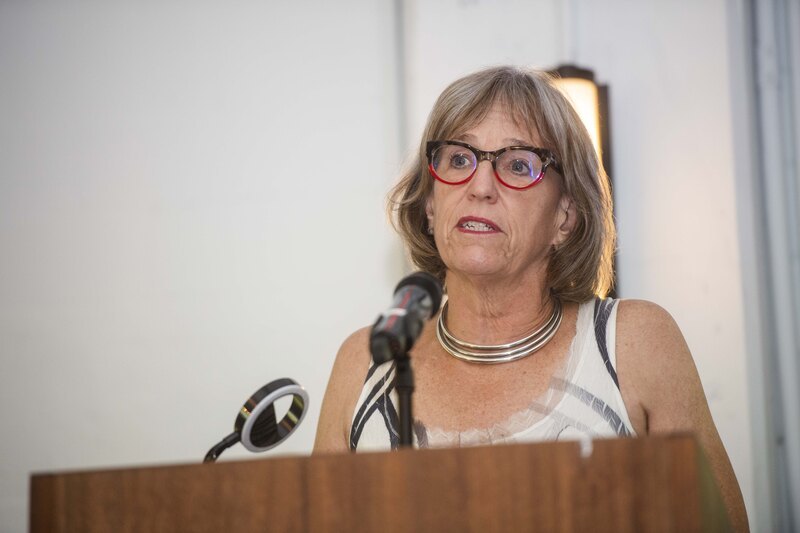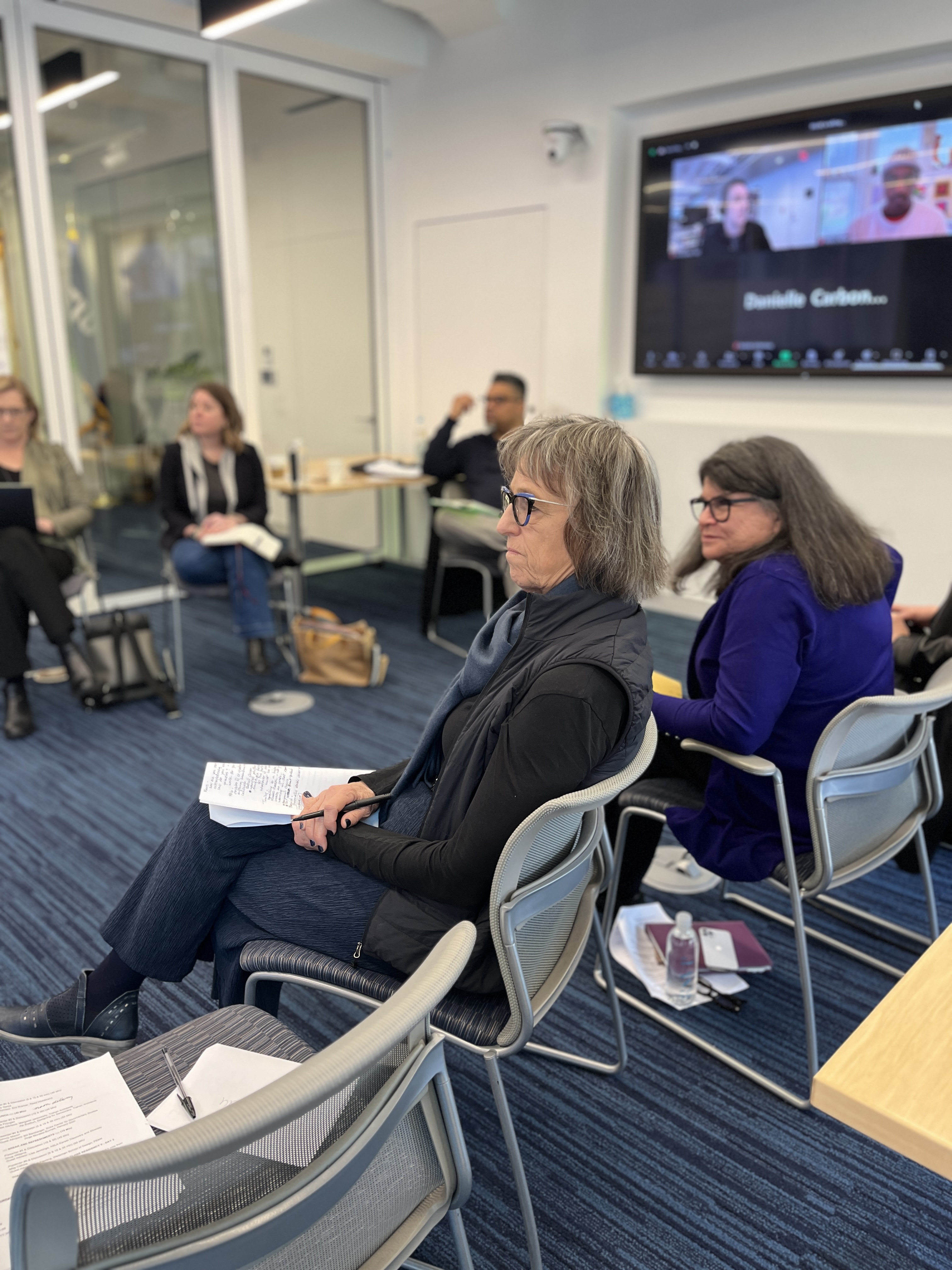Lucinda Sanders Reflects on Leadership in Landscape Architecture

Lucinda R. Sanders, EdD, RLA, FASLA, is the recipient of LAF’s 2024 Legacy Award, which recognizes and shows appreciation for past members of the LAF Board of Directors who have provided extraordinary service and contributions to the organization and its legacy. Ahead of the LAF Symposium and Awards Dinner, we called Lucinda up to learn more about her legacy of leadership and how transformational leadership can bring about change in landscape architecture.
Lucinda Sanders has seen three major shifts in the discipline of landscape architecture since she began her career: a larger scope of responsibility, an increased level of complexity that requires landscape architects to communicate and translate across disciplines, and larger-scale thinking and planning. When she started in practice, the profession was focused on smaller, more site-specific concerns. Lucinda comes out of the McHargian tradition, which was planning-oriented, so she learned early on the theory and tools needed for larger-scale thinking; but the clients weren’t there to hire landscape architects for that type of work. While demand has evolved for firm-based landscape architects, the challenge still remains: professional services are shaped by clients. They have a project and landscape architects respond. This remains the working model.
When it comes to the pressing issues of our day—the environmental and social challenges that landscape architects are so well-suited to address—innovation and improvement is often confined to individual projects and specific sites. Lucinda doesn’t want to diminish the importance of these site-specific transformations or their value. However, the pace at which change can happen within this construct is limited. For landscape architects who want to see change and use their skills to address the big issues, how can they bring about transformation beyond the site-specific scale?
This is the question Lucinda set out to answer about ten years ago. Teaching professional practice at the University of Pennsylvania and participating in conversations across the discipline, she consistently heard the complaint from landscape architects that even though this discipline has great ideas and tools for creating change, nobody is listening and giving landscape architects the opportunity to put their ideas into practice at scale. She saw potential leaders giving up after repeatedly hitting this wall.
Lucinda had long been interested in finding a solution to this dynamic, in finding ways to bring forward the best of the profession while shedding patterns that hold it back. So, she began intensively studying transformational leadership, a process in which leaders motivate and inspire followers.
Transformational leadership sits on the opposite end of a spectrum from transactional leadership, which is marked by more traditional “exchanges” between leaders and followers. Effective transactional leaders manage with specific goals and rewards, while transformational leaders focus more on increasing the follower’s own inner motivation and change-making abilities. Lucinda realized that, as important as better contracts and construction documents were, she wouldn’t be shifting the profession by making better practitioners. What the discipline needed was better leaders. What the world needed was more landscape architects who could lead. She wasn’t looking to pick out the next starchitects who could move the world forward with their sheer charisma and influence. Rather, she wanted to foster leaders who collaborated and set aside egos in pursuit of the big picture, leaders who in turn fostered and empowered other leaders wherever they went.

She started looking around for fertile ground to plant seeds of leadership and identified three places to focus her energy. The first was her own practice. Lucinda is President and CEO of OLIN, and co-owner of the firm alongside her partners. “Take the lesson and bring it home,” she advises. Second was the Weitzman School of Design at the University of Pennsylvania, where she teaches. And finally, there was the Landscape Architecture Foundation. Lucinda joined the LAF Board in 2008, serving in several roles, including President, until 2016. During that time, she was instrumental in developing and leading the LAF Fellowship for Leadership and Innovation. In summing up the heart of the program, Lucinda shares a favorite quote from UC Berkley’s Kristina Hill (who served on the Board alongside her), “LAF is not about the best practices; it’s about the next practices.”
Since 2017, the LAF Fellowship has been a place where Lucinda can channel what she has learned about transformational leadership. “I honestly can say,” she reflected, “that having this ability to work to support emerging leaders, to coach them, to support them, has been profound for me and continues to be profound, and this is this is what motivates me.” Alongside MVVA’s Laura Solano, Lucinda spends a year working with each cohort of six LAF Fellows, helping them take their big ideas to the next level. She pushes them to lead in their areas of expertise and challenges them to craft their message for everyone who needs to hear it, not just the already-converted audience of landscape architects.
Recalling one memorable moment from the 2018-19 cohort, Lucinda shared a story of pushing Pamela Conrad—now a leading voice on climate positive design. “Pamela,” she asked, “who is going to care about what you’re talking about?” Pamela was frustrated. She felt the urgency of her project deeply and thought the need was obvious. Lucinda in turn played the role of the disbeliever so Pamela and the other fellows could learn how to get everyone on board and make change in the face of pushback and blowback. Because there will be pushback. “Any leader,” she says, “anybody who aspires to bring about transformation is going to hit a lot of blowback.” The challenge is to keep going and move beyond that resistance. How do you bring the disbelievers on board and generate movement on your idea?
And that brings us to her advice for anyone who wants to be a leader—no matter where they are in their career. “When you start a job,” she says with recent graduates in mind, “people are not going to just hand you everything you need to become this next leader. There is a misperception about employment, that it’s going to do everything for us in our lives.” In reality, there is work we need to do outside of work, qualities one needs to develop. Beyond technical knowledge and expertise, leaders have to be cognizant of their interactions with others. They need to be intentional about how they communicate and how they show up. This type of leadership takes constant vigilance because what’s being asked of an individual continually evolves through the stages of their career. This awareness, this ability to be present, to work intentionally, and collaborate effectively, these are the qualities that Lucinda believes can empower individuals to be leaders at any stage in their career.
Lucinda Sanders will be presented with the LAF Legacy Award on June 6, 2024, at the LAF Awards Dinner. Tickets are now available for the 2024 LAF Leadership + Innovation Symposium and Awards Dinner.











